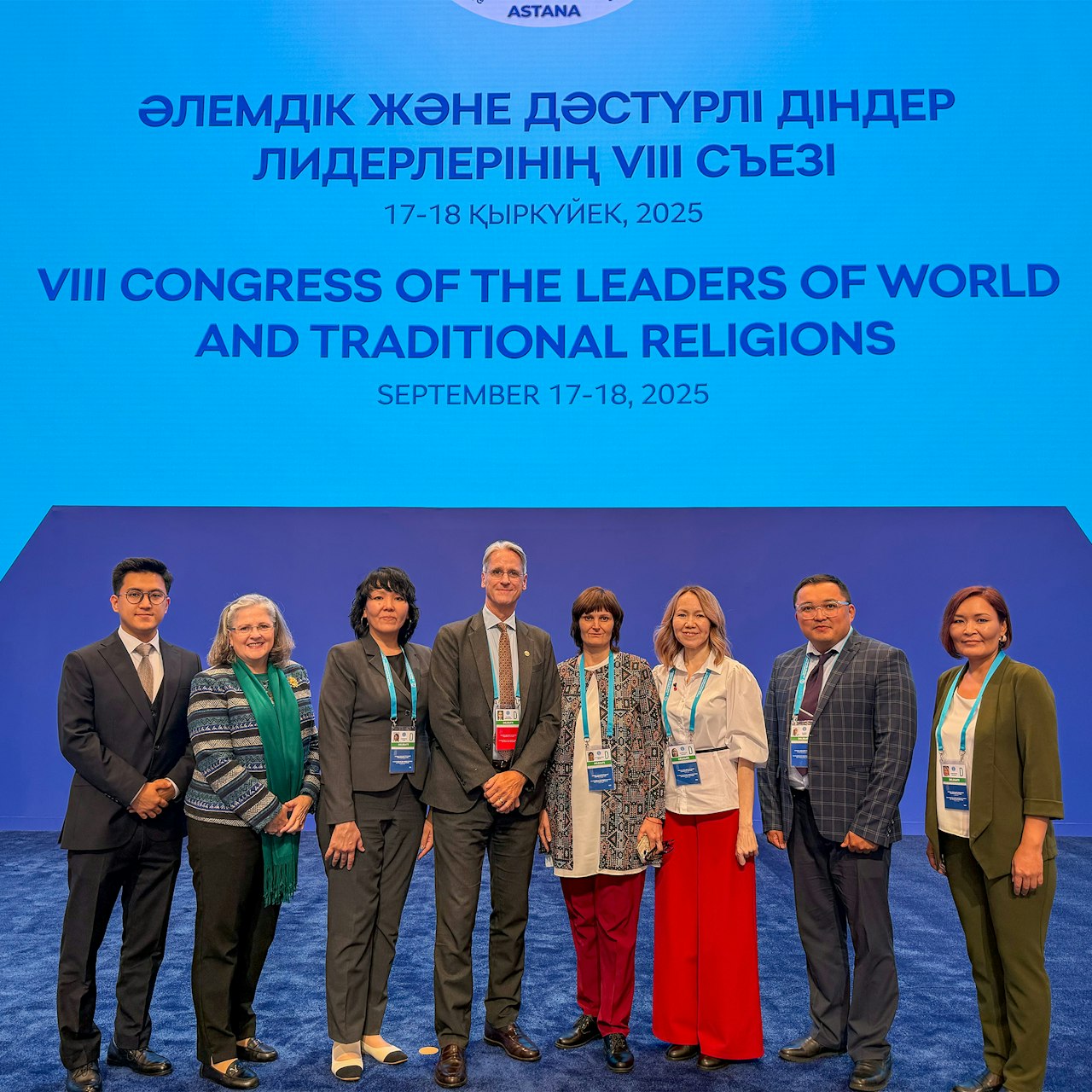
KAZAKHSTAN
Religion as the inspiration for cooperation
Consultation is essential to addressing contemporary challenges, say Bahá’í delegates at the 8th Congress of Leaders of World and Traditional Religions.

Consultation is essential to addressing contemporary challenges, say Bahá’í delegates at the 8th Congress of Leaders of World and Traditional Religions.
ASTANA, Kazakhstan — Over 100 religious leaders from 60 countries gathered in Astana recently at the 8th Congress of Leaders of World and Traditional Religions to examine how religious communities can be a greater force for cooperation in addressing global issues, such as climate change, technological disruption, and social fragmentation.
Speaking in the plenary session, David Rutstein, Secretary‑General of the Bahá’í International Community, said that meaningful cooperation rests on the spirit in which we speak and listen.
“The Bahá’í perspective offers a hopeful and practical approach to religious dialogue—one rooted in the principle of consultation,” he said, quoting Bahá’u’lláh: “The well‑being of mankind, its peace and security, are unattainable unless and until its unity is firmly established.”
Drawing on the Bahá’í community’s experience, Dr. Rutstein highlighted elements of consultation that can strengthen religious dialogue: a sincere search for truth rather than debate; honoring every participant; patient, empathetic listening; detachment from one’s own ideas once they are offered; and speaking without giving offense while listening without taking offense.
“Consultation begins with a sincere search for truth,” he noted. “It is not a debate, nor a contest of ideas, but a collective investigation.”
The Congress featured the Forum of Young Religious Leaders on the theme of “Youth for Peaceful Coexistence.”
Alinur Sabit, Secretary of the National Spiritual Assembly of the Bahá’ís of Kazakhstan who participated in the forum, raised questions about how young people can better promote collaboration over competition and how religious leaders can ensure young girls have equal access to education.
In a conversation with the News Service, Mr. Sabit reflected on the tension between cooperation and competition. “We are accustomed to thinking of competition as a natural or even necessary part of progress,” he said. “But to what extent does competition facilitate genuine reciprocity? How much does it encourage us to share knowledge generously, to strive to support our peers so that everyone can prosper?”
He emphasized that cooperation is not merely a reasonable requirement for addressing contemporary challenges but reflects a deeper truth about human nature.
Beyond the formal sessions, the Bahá’í Office of Public Affairs of Kazakhstan hosted two receptions that invited attendees to participate in creative workshops, including a participatory wool‑felting artwork inspired by the image of “the leaves of one tree,” a theme that resonates both in Kazakh culture and Bahá’í teachings.
Reflecting on the event, Lyazzat Yangaliyeva of the Office of Public Affairs and representative of the Bahá’í community at the Congress, explained that the significance of the Congress lies not only in who attends but in how its spirit is carried into ongoing national conversations.
“Kazakhstan has created a space where religion is not sidelined to private belief, nor used to divide, but invited to contribute practical insight to public questions,” said Mrs. Yangaliyeva in a conversation with the News Service.
“Our office is learning how to widen the circle—bringing academics, community leaders, and young people into frank, consultative conversations about contemporary issues. What matters is that we are building habits of listening and shared inquiry that help religion serve the common good.”